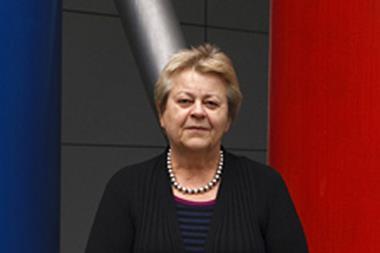Legal experts and risk managers met in Paris to discuss hot risk management topics

Talking to StrategicRISK at the first Aida-Ferma conference on insurance law, Ferma president Jorge Luzzi (pictured) lamented that “unfortunately, today, many companies are buying insurance like they are buying pencils, and it’s not the same”.
Luzzi was speaking as part of the first conference organised with insurance law organisation Aida in Paris on 3 June.
He said: “Aida and Ferma have a similar approach in some things, and in others, they are complementary. They complement one another because, for the risk management community, insurance is one of the most important instruments to transfer risk, and to go deep into the level of detail we are going into today with such an association is really important for us.”
This is the first collaboration between the two associations, and its purpose was to bridge the gap between legal theory and practice, encourage a dialogue between the risk management and legal sectors and create a better understanding of what happens when the law is applied to businesses.
Aida-Europe chairman Colin Croly said: “The more we know about the law, the more there will be certainty in the market and this will influence premiums, covers and what can be recovered through (re)insurance.”
The conference brought together legal experts and risk managers from eight countries (four speakers per session) to discuss co-insurance, embargoes, serial claims, and directors’ and officers’ liability.
Four topical subjects
Although co-insurance is the most common way of placing large risks, the four speakers noted the lack of harmonisation between the different European (let alone global) regimes, as well as numerous different market practices. Further, in light of the interest shown by the European director-general competition with respect to the sector, the panel said that open and transparent co-insurance is not only a must in a market where capacity is an issue, but also the most realistic proposition to insure large and complex risks.
On the next subject, serial claims, the panel acknowledged a general lack of provisions at national and EU level, though France has one that is “short and impossible to understand”, as Aida-Europe vice-chairman Jérôme Kullman put it.
The first question at hand concerned the aggregation of serial claims. The participants reviewed some cases illustrating the unifying factors that can turn a series of claims into one claim for the purposes of the deductible, the limits and the notice provisions of the insurance policy. Although most cases will turn on their own facts, the exercise offered good examples of the courts’ approach to such claims.
The panel then moved on to the effect of the policyholder’s insolvency. When only one indemnity is available, should claims be settled on a first-come-first-served-basis, which means that some claimants may miss out, or should they be split pro rata between the claimants? In the latter case, as discovery periods may extend to several years, some claimants may no longer be alive by the time the first payments are made.
The third subject acknowledged the fact that in a world with a rapidly changing political scene and emerging conflicts, businesses may struggle to keep up with rules and regulations relating to embargoes. The speakers took the example of Iran. They reviewed some of the EU and US embargo regulations with respect to insurance, the scope of their application and the penalties for infringement. They then questioned the fairness of contractual sanction clauses before asking how infringement could be avoided in daily business?
The last subject was directors’ and officers’ liability. Here, the fours panellists took it in turns to explain the differences in practice of their respective countries - namely, France, Spain, the UK and Hungary - with respect to questions such as wrongful intent, punitive damages, defence costs reimbursements as well as civil or administrative fines.
Although the conference may have posed more questions than solutions for risk managers, by making them aware of potential problems, it certainly would have given them food for thought.




















No comments yet